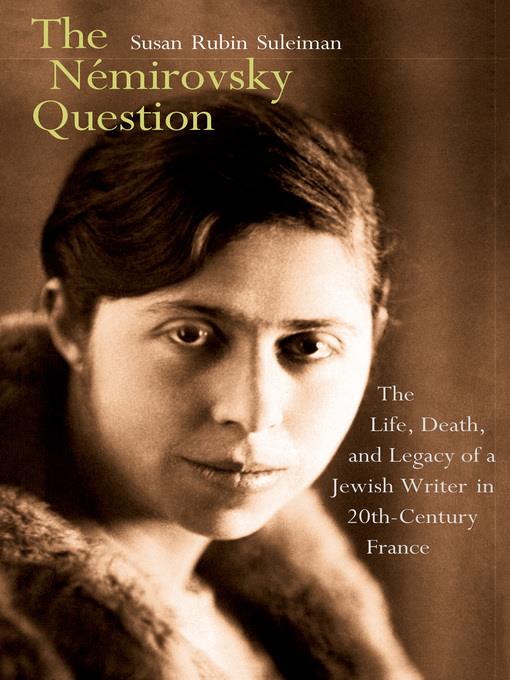
The Némirovsky Question
The Life, Death, and Legacy of a Jewish Writer in Twentieth-Century France
کتاب های مرتبط
- اطلاعات
- نقد و بررسی
- دیدگاه کاربران
نقد و بررسی

September 15, 2016
A literature scholar investigates the Jewish identity of novelist Irene Nemirovsky (1903-1942).Drawing on biographical and historical evidence, Suleiman (Civilization of France, Comparative Literature/Harvard Univ.; Crises of Memory and the Second World War, 2006, etc.) homes in on a question that has disturbed some critics and readers: whether Nemirovsky was a self-hating Jew. In responding to that question, Suleiman creates a nuanced portrait of a secular, assimilated Jew, a woman who identified most strongly as a member of the French intelligentsia. Born into a Ukrainian Jewish family, Nemirovsky immigrated with them to France in 1919. Ten years later, married and a mother, she published her first novel, David Golder, to exuberant acclaim. The book became a bestseller and, writes Suleiman, "made her, virtually overnight, into a famous writer as well as a highly respected one." Two novels quickly followed, and David Golder was made into a play and a film. Nemirovsky's prominence fueled her ambitions to join France's literary establishment, and she coveted the prestigious Prix Goncourt. That honor, however, could be awarded only to a French citizen, but for reasons Suleiman cannot explain, Nemirovsky and her husband put off applying for citizenship. As foreign Jews, the couple became increasingly aware of their perilous state, which likely impelled them, in 1939, to convert to Catholicism and have their daughters baptized. Both daughters later said that security was their parents' primary reason for conversion. Critics who question Nemirovsky's connection to Judaism cite her creation of some stereotypical Jewish characters and, more damning, her continued publication in a journal that spewed anti-Semitism. Suleiman maintains, however, that the journal's political views were separate from their literary selections; furthermore, at the time, Nemirovsky desperately needed money, especially after her husband was fired from his job because he was Jewish. Besides research in published and archival sources and close readings of the writer's works, Suleiman draws on interviews with Nemirovsky's surviving family members to offer an intimate, perceptive portrait of a complex woman and her times. A useful biographical portrait of an intriguing writer.
COPYRIGHT(2016) Kirkus Reviews, ALL RIGHTS RESERVED.

























دیدگاه کاربران